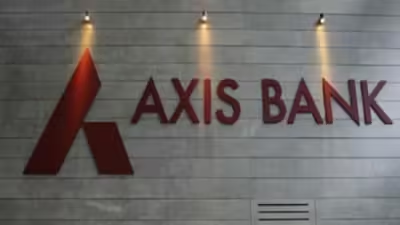Supreme Court Stays Allahabad High Court’s Ruling on Madarsa Education Act 2004

Madarsa Education Act 2004
The Supreme Court’s decision to stay the Allahabad High Court order scrapping the UP Board of Madarsa Education Act, 2004, comes as a significant relief to approximately 17 lakh madrassa students in Uttar Pradesh. The high court’s ruling had sparked concerns about the fate of around 16,000 madrassas in the state, which would have been impacted by the decision to revoke the 2004 law. The bench, led by Chief Justice of India DY Chandrachud, expressed its view that the high court’s decision appeared prima facie incorrect and issued notices to the UP and central governments, as well as the Madrassa board.
The Allahabad High Court’s judgment had declared the 2004 law unconstitutional, citing violations of the principle of secularism, and had directed the government to integrate madrasa students into the formal education system. However, the Supreme Court, in its stay order, emphasized that the objectives of the Madrassa Board are regulatory in nature and do not inherently undermine secularism.
Chief Justice Chandrachud highlighted the potential adverse impact on the 17 lakh students affected by the high court’s directive to relocate them to other schools. He emphasized that if the goal of the PIL is to ensure that madrassas provide secular education in core subjects, repealing the provisions of the Madarsa Act 2004 may not be the appropriate solution.
While the central and state governments supported the high court’s judgment, arguing for a debate on the perceived entanglement of religion in education, senior advocate Abhishek Manu Singhvi, representing the madrassas, countered that religious education should not equate to religious instruction. He underscored the plight of 10,000 madrassa teachers and 17 lakh students who would be affected by the high court’s decision.
Singhvi also refuted claims that madrassa education lacks quality and universality, citing discriminatory implications and invoking a previous Supreme Court verdict. The Chief Justice acknowledged the gravity of the issues raised and scheduled further hearings on the matter in the second week of July, indicating the need for closer examination and deliberation.
Today Case of drug recovery from Mundra port transferred from Punjab to Gujarat court
Background:
- Allahabad High Court’s Judgment on March 22, 2024, striking down the ‘Uttar Pradesh Board of Madarsa Education Act 2004’ as unconstitutional.
- The Act regulates Madarsa education in Uttar Pradesh.
- High Court directed the government to accommodate Madarsa students in the formal education system.
Supreme Court’s Intervention:
- Supreme Court stays the High Court’s judgment on April 5, 2024.
- Bench comprising Chief Justice DY Chandracuhd, Justice JB Pardiwala, and Manoj Misra.
- Notices issued on five Special Leave Petitions challenging the High Court’s ruling.
Observations and Analysis:
- High Court’s prima facie misunderstanding of the regulatory nature of the Act.
- Operative directions of the High Court could impact education of nearly 17 lakh Madarsa students.
- Act does not provide for religious instruction; primarily serves regulatory purposes.
- Concerns raised over abrupt disruption of existing education system; 17 lakh students and 10,000 teachers affected.
- High Court’s judgment may have overlooked relevant precedents and statutory provisions.
Couple, friend from Kerala found dead in Arunachal Ziro Hotel
Petitioners’ Arguments:
- Anjum Kadari and various Madarsa associations challenge High Court’s ruling.
- Religious education does not imply religious instruction.
- Madarsas provide quality education and are regulated by the 2004 Act.
- Abrupt alteration of Madarsa regime without suitable alternatives may cause chaos.
State and Union Government’s Response:
- State of Uttar Pradesh accepts High Court’s judgment.
- Union of India supports High Court’s decision, citing concerns about entanglement of religion in education.
Legal Analysis and Future Implications:
- Supreme Court’s interim stay order ensures continuity in regulatory framework governing Madarsas.
- Scheduled for further hearing in July 2024.
- Implications for education policy, religious freedom, and regulatory frameworks.
Conclusion:
- Supreme Court’s intervention provides relief to Madarsa students, teachers, and associations.
- Ensures continuity in regulatory framework pending further legal deliberation.
- Balancing religious freedom, educational standards, and regulatory concerns remains a key challenge.







[…] Must Read : Supreme Court Stays Allahabad High Court’s Ruling on Madarsa Education Act 2004 […]